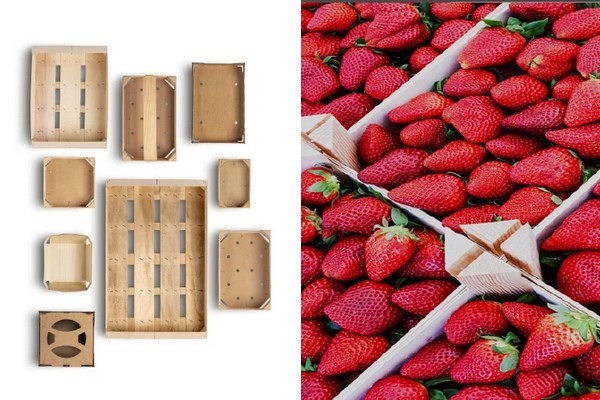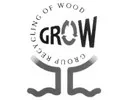The European packaging industry is facing a decisive change: The planned EU Packaging and Packaging Waste Regulation (PPWR) sets new, high standards for recyclability, sustainability, and resource conservation. "For the fruit and vegetable sector, this not only means new challenges but also offers opportunities to distinguish itself – provided that the industry is prepared and can demonstrate its contribution to the circular economy," explains Uwe Groll, Managing Director of GROW Deutschland GmbH.
 © Hugo Huijbers | FreshPlaza.com
© Hugo Huijbers | FreshPlaza.com
Uwe Groll at the DOGK 2024
Preparing for the PPWR - opportunities for wood packaging
The wooden packaging industry can look back on decades of success with sustainable products. Many of its products already meet key PPWR requirements: "They are based on renewable raw materials, are recyclable and – under certain conditions – even compostable. The GROW® logo established by industry associations has long been a guarantee of quality, traceability, and environmental responsibility," says Groll.
Following the PPWR, the sector is preparing intensively for the upcoming legislation by modernizing its processes and certification systems and seeking cooperation with European standardization bodies and NGOs. Groll: "To respond to the new challenges and decision-making processes at the EU level in the best possible way, the industry has also moved its international representation, GROW-International, to Brussels. This means that it will be directly available as a competent point of contact in the future."
 © Grow GmbH
© Grow GmbH
Circular economy as an industry standard
Wooden packaging is inherently part of an ecological cycle: "The raw material comes from sustainable forestry, which emphasizes biodiversity and climate-stable forest stands. After use, crates, boxes, and pallets can either be recycled or, in the case of non-reusable waste wood, used for energy. The sector is committed to establishing cascade use: first material use, then energy recovery. This means that wood is only converted into energy after it has had the longest possible life in the material cycle. In this way, the wood packaging industry makes an important contribution to resource conservation and CO₂ reduction."
Advantages for the fruit and vegetable industry
Compared to other packaging solutions, wood products offer numerous advantages that are particularly important for the fresh produce logistics of fruit and vegetables. Wood is breathable and moisture-regulating, which can extend the shelf life of sensitive goods. Studies show that wood packaging has antimicrobial properties and thus contributes to food safety. "What's more, it is robust, easy to transport, and simple to recycle. At a time when retailers and consumers are placing increasing value on sustainability, wood is a compelling argument in the supply chain," Groll emphasizes.
 © Grow GmbH
© Grow GmbH
Innovations and current developments
The sector is working intensively to further develop its certification systems. "In the future, the GROW® logo is to be established more strongly throughout Europe as a sign of recyclability and sustainability. The integration of ECOWOOX® structures, which enable accredited certification of recyclability, is planned. Another current topic is the complete integration of wooden packaging into collection and recycling systems to create uniform standards throughout Europe. The industry is also involved in scientific research into food safety and hygiene issues to meet the high demands of retailers and consumers."
Challenges and outlook
The upcoming PPWR requires the wood packaging industry to further develop its strengths in a targeted manner. These include the consistent use of sustainable raw materials, the modernization of production and recycling processes, and active lobbying for the legal recognition of cascade use. At the same time, it is important to continue to communicate the advantages of wood in the food sector on a scientific basis and to address regulatory obstacles at an early stage.
Wooden packaging is a future-proof, sustainable link in the fruit and vegetable industry. "The sector sees the challenges posed by the new EU Packaging Regulation as an opportunity to strengthen its circular economy, drive innovation, and offer responsible solutions for retailers and consumers. The coming months will be crucial in setting the course for a sustainable and competitive future," concludes Groll.
For more information:
Uwe Groll
GROW Verein für umweltfreundliche Holzverpackungen e.V.
Hauptstraße 98
67133 Maxdorf
Tel: +49 (0)6237-929593
[email protected]
www.grow-deutschland.de
